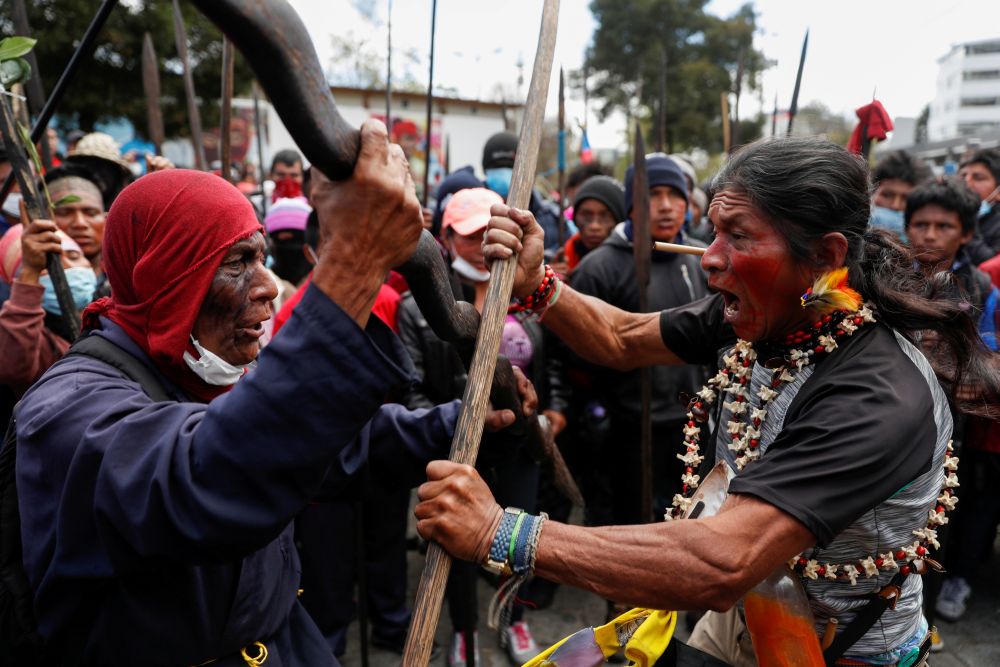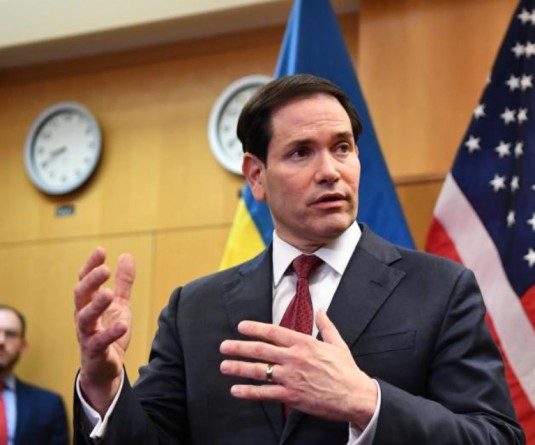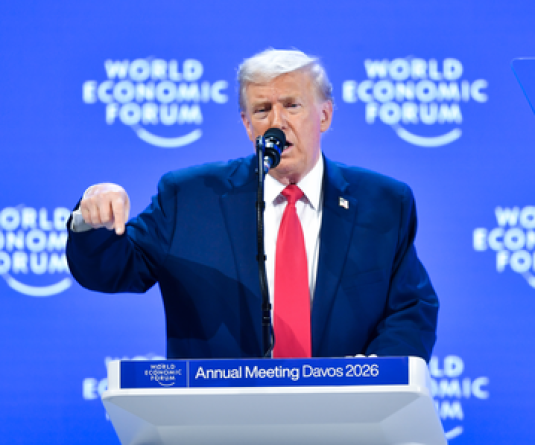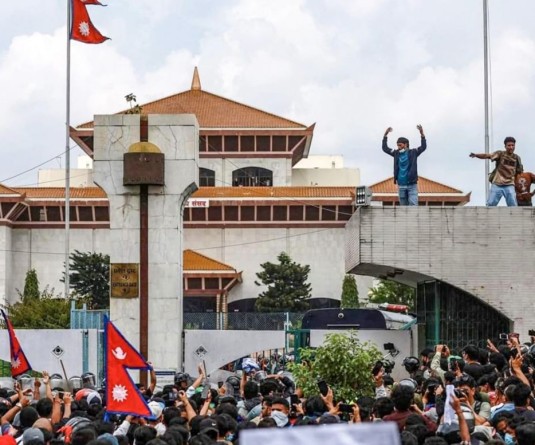Hopes for talks to end unrest in Ecuador dim as protests roil capital

Indigenous people participate in a protest against Ecuador's President Lenin Moreno's austerity measures in Quito, Ecuador, October 11, 2019. REUTERS/Carlos Garcia Rawlins TPX IMAGES OF THE DAY
QUITO, October 12 (Reuters) - Hopes for a negotiated end to the worst unrest in Ecuador in at least a decade dimmed on Friday as clashes between police and anti-austerity protesters continued for a ninth day in the highland capital Quito.
In a 40-second televised address, President Lenin Moreno proposed direct talks with indigenous leaders who have mobilized thousands of protesters to the streets in the South American country of 17 million.
But chief organizer Jaime Vargas, the head of an umbrella organisation for indigenous groups across the country, rejected the proposal within minutes.
"We're defending the people," Vargas said in a live Facebook video from the march in Quito.
Vargas reiterated protesters' demands for Moreno to immediately repeal a law that ended a four-decade old fuel subsidy last week.
Moreno has repeatedly refused to overturn the measure, describing it as a key part of his efforts to reduce the country's fiscal deficit after he signed a $4.2 billion loan deal with the International Monetary Fund (IMF).
But opponents say higher fuel prices have pushed up the cost of many consumer goods, hitting indigenous and poor people the hardest.
The unrest has led Moreno's government to flee the capital for a safer city on the coast and curbed nearly 900,000 barrels of crude production in the OPEC-member nation.
At least four protesters have died and hundreds have been wounded and arrested.
The IMF is unpopular in much of Latin America and leaders have faced pushback on structural changes that the organisation has promoted. Argentine President Mauricio Macri was trounced in an August primary vote amid stiff opposition to an IMF deal he signed last year.
'MUST REGAIN CALM'
"The country must regain calm. The country must know we have the will for dialogue," Moreno told indigenous protest leaders in his televised address.
Many indigenous leaders have dismissed talks with the government as an attempt to distract and divide them. They have also called for an end to police violence that human rights groups say has been disproportionate.
On Thursday, indigenous demonstrators held a group of police officers captive in Quito for several hours in retribution for an indigenous leader killed in the unrest.
"Trust needs to be regained," Catholic Bishop Luis Cabrera said in a televised interview. "As long as each side is radicalising their positions I think it'll be very hard, almost impossible, for there to be dialogue."
Thousands of protesters, many wearing the traditional bowler hats of highland Indians or the face paint of lowland tribes, marched through downtown Quito on Friday chanting, "leave Lenin, leave!"
Police fired tear gas in parts of the city as masked youths threw Molotov cocktails and volunteers carried away the wounded.
The protests first erupted last week when truck drivers took to the streets, but indigenous protesters have since taken the lead, with villagers from the highlands walking and hitching rides to reach Quito.
Representatives of Amazonian tribes, many carrying spears, streamed into the city late Thursday and early Friday, adding opposition to oil drilling to a growing list of complaints about Moreno's government.
While most roads in Quito outside of the centre remained clear, dozens of taxis formed a caravan that wound through the city to express solidarity with protesters, honking and displaying anti-Moreno signs.






